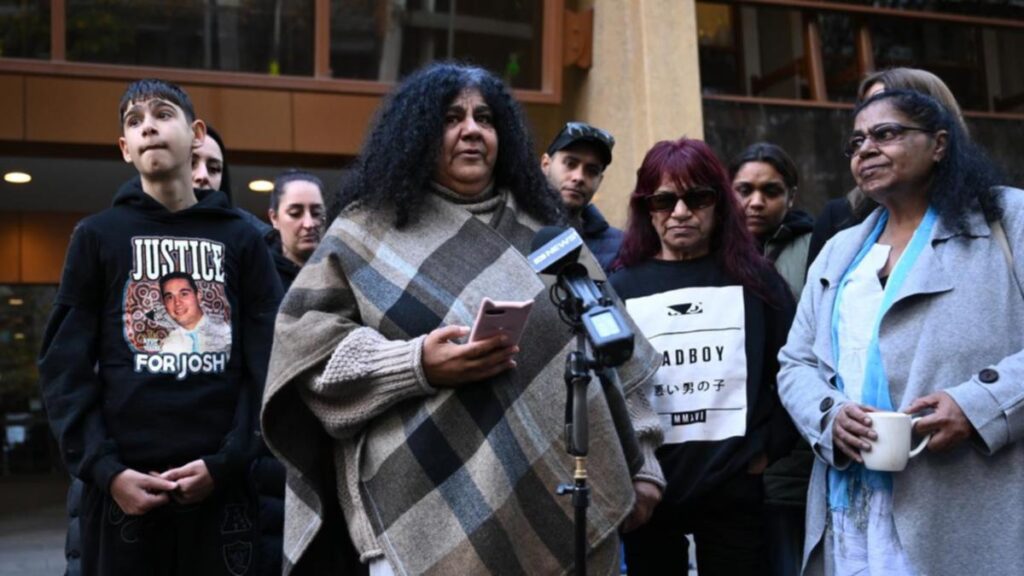For 16 minutes an Indigenous man was left unconscious in his prison cell before dying, in what his mother describes as a system lacking care and compassion for human life.
A series of missed opportunities culminated in the preventable death of 32-year-old Yorta Yorta and Gunaikurani man Joshua Kerr, Victorian coroner David Ryan has found.
He likely died from cardiac arrhythmia or a seizure after ingesting a significant amount of meth, the coroner said in inquest findings on Monday.
Kerr had been quarantining in his cell in Port Phillip prison, as part of COVID-19 protocols, after attending a funeral days earlier.
Hours before his death, Kerr’s behaviour became erratic, lighting fires in the cell and he was taken to St Vincent’s Hospital after burning his hand.
Before going to hospital, the inmate had disclosed to a nurse he had taken methamphetamine.
Kerr’s behaviour continued to spiral while at hospital where he became agitated, refusing treatment and wanting to return to the prison.
Due to concerns over his escalating abusive behaviour towards hospital staff, Tactical Operations Group police took him back to prison before doctors could redress his wounds, assess his ice use disclosure and notify staff or formally discharge him.
A hospital discharge summary was not provided to prison nurses once he returned. Instead “vague” information was passed on.
“TOG officers did not disclose to staff that he may have stated to have ingested half a ball of ice,” Mr Ryan said.
Kerr’s behaviour gradually deteriorated after returning to a cell in the medical wing at 4.45pm, with a psychiatric nurse raising his risk rating to the highest level after an assessment.
There was an unwritten understanding in the prison that the door to Kerr’s cell could not be opened without TOG officers nearby.
“I’m dying” rang through Kerr’s intercom at 6.30pm.
It was met with silence.
By 7.40pm, Kerr’s movements began to slow, and he was completely unresponsive about 8.02pm when a code black – medical emergency – was called.
It took 16 minutes for his cell door to be opened as prison staff waited for TOG officers.
Kerr was pronounced dead at 8.40pm.
Outside court, Kerr’s mother Aunty Donnas Kerr demanded the coroner’s findings be urgently implemented in all prisons.
“The coroner found that the correctional and medical staff at the prison should have known my son was dying,” she said.
“For hours they didn’t go into his cell or call an ambulance.
“This is what is wrong with our system – the lack of care and compassion for human life, or Aboriginal lives.”
A post mortem found an “exceptionally high” level of ice in Kerr’s system which Mr Ryan believed was likely ingested orally.
“It was a preventable tragedy that devastated his family and community,” he said.
“More decisive actions by staff could have saved him.”
Kerr’s meth ingestion influenced his decision to light the fire and impaired his judgment, leading to him becoming incoherent and unable to interact with staff, Mr Ryan found.
The coroner found there were multiple opportunities for prison staff to have sent Kerr back to hospital over his escalating behaviour and the organisation’s culture of security over all else played a role in his death.
The coroner made a number of recommendations including better training for prison officers and nurses to recognise drug-affected prisoners and to reinforce their authority when it came to the health of inmates. He also called for better communication standards between prison and hospital staff to ensure all information is passed on.
13YARN 13 92 76
Lifeline 13 11 14
